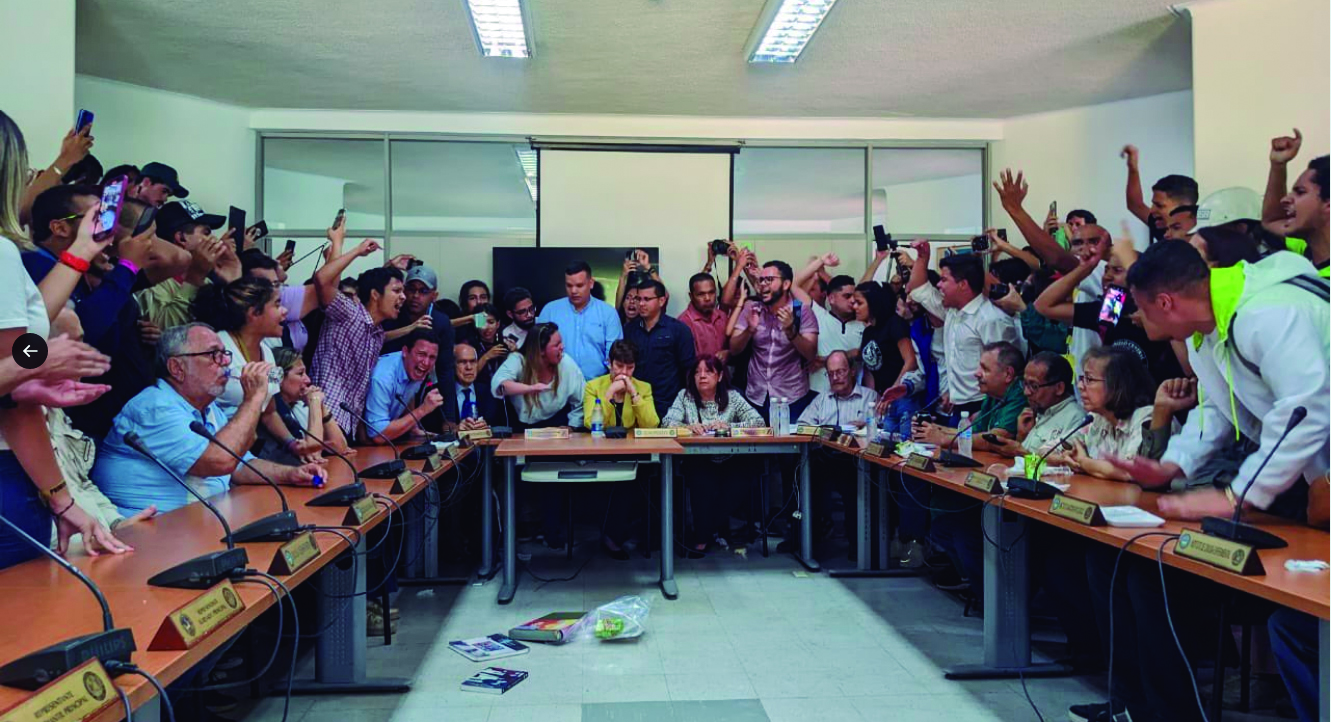Since 2008 Cecilia García has been rector of the Central University of Venezuela, despite the fact that she should have held the position until 2012, due to different situations and maneuvers, she today holds “directing” the most important university in the country.
As if the additional 11 years at the helm of the rectory of the UCV are not questionable enough, the complaints against him for conduct that does not adhere to the norm tend to be more high-sounding.
The support from the opposition right has allowed him to use the discourse of democracy, but reality says otherwise after the noise generated by the suspension of the elections in the UCV on May 26. As a consequence, the complaints against him come to the fore again.
A resignation with accusations of corruption
On January 11, 2020, the administrative vice-rector, Bernardo Méndez, presented his irrevocable resignation from the position held since June 20, 2008, arguing that “there are multiple reasons that lead me to make this decision that I have postponed to avoid a conflict between authorities that would affect the university (…) The Office of the Rector has come to assume powers of intervention in the tasks that by law and regulations are the responsibility of the Office of the Administrative Vice-Rector, producing the progressive dismemberment of its Institutional Organizational Chart”.
Méndez detailed in his resignation a long list of offenses that reveal acts of corruption, authoritarianism and usurpation of power by the rector García Arocha.
Méndez showed in his letter that among the irregularities that caused his resignation are the dismissal and unconsulted appointments of heads and directors of dependencies attached to the Office of the Administrative Vice President; the delivery of budgetary availability from the planning department without its knowledge; the appointment of a centralized contracting commission in the rectory parallel to the existing one in the vice-rectorate and the multiple contracts for services and works that have been presented from the rectory with budgetary availability granted by the budget department, although the resources were not destined for that end.
“The Office of the Administrative Vice Chancellor did not at any time have direct interference in the operations that were carried out and are carried out with the investments and availability in Foreign Currency. Since the transfer to the UCV, all the processes were carried out directly from the Office of the Rector”, explained Méndez.
To record García’s shady dealings that led to his resignation, Méndez attached a CD with all the indicated documents that support his complaints.
At that time, the university advisor Miguel Alfonzo reported that the resignation occurred in the middle of a session of the university council and also added that the resignation was due to “a series of irregular acts carried out by the rectory team during the 11 years and 7 months of management in that instance,” he said on Twitter.
Different voices accompanied the complaints that support the resignation of Méndez about different irregularities of Cecilia García Arocha.
Robbery from workers
As the UCV is by legal mandate responsible for guaranteeing the social security of its workers, on June 30, 2010 the University Council, the Association of Professors (APUCV) and the Council of Retired University Professors of the UCV (CPUJCV), dissolved the Fund for Retirement and Pensions of the Teaching and Research Staff of the Central University of Venezuela (FONJUCV), so that all movable and immovable property be transferred in full ownership to the UCV and destined solely and exclusively for the social security of the teaching staff of this house of studies.
By the way, Bernardo Méndez in his resignation explained that “despite the fact that in 2015 the University Council (CU) approved the liquidation report of the Retirement Fund Foundation (FONJUCV), the rectorship contravened what was established, imposing the transfer of assets and patrimony in foreign currency, constituting an administrative act in violation of the rules and procedures, aggravated by the fact of not having presented the point with all the information at the time of the discussion in the University Council”.
“The administrative vice-rector’s office had at no time direct interference in the operations that were carried out and are carried out with the investments and availability in Foreign Currency. Since the transfer to the UCV, all the processes were carried out directly from the Rectorate” he added.
willful handling
In an interview with deputy Ricardo Sánchez in May 2020, regarding the resignation of Bernardo Méndez, the then president of the National Constituent Assembly (ANC) education, science and technology commission, he stated that “the commission in plenary session studied the document that implies the fraudulent management of university resources, of the Republic, and the alleged commission of acts contemplated as crimes in the Anti-Corruption Law”.
Regarding the effects on the patrimony of the UCV, Sánchez responded to RedRadioVe that “the complaint expresses with details and is supported by fraudulent documents that even exceed 21 million dollars, has to do with purchases of real estate with overprices, for example the case of a real estate in Santa Monica for the operation of the Imaging Center valued around USD 800,000 and the UCV ended up paying almost USD 3,000,000.
Sánchez added that there is a deviation of items and “highlights the contracting, by direct award from the rectory, of a company for the insurance of teachers, where the coverage is much lower in terms of what it offers but the policy is 4 and 5 times more expensive”.






